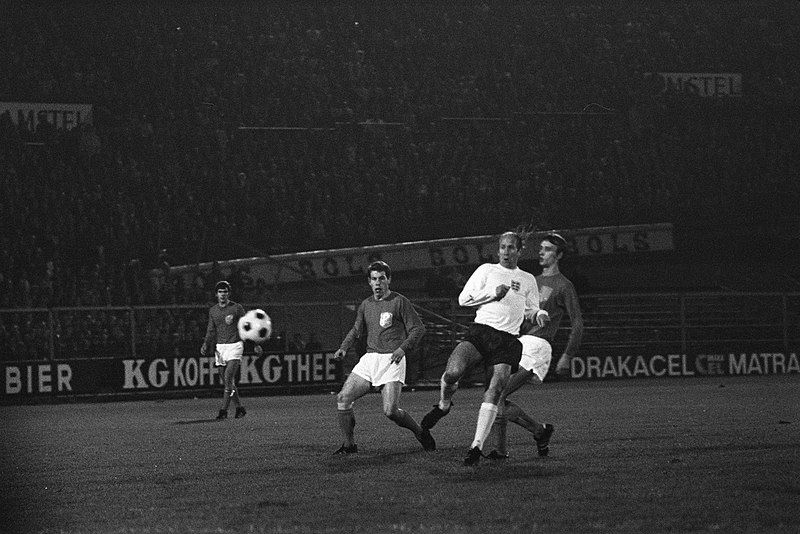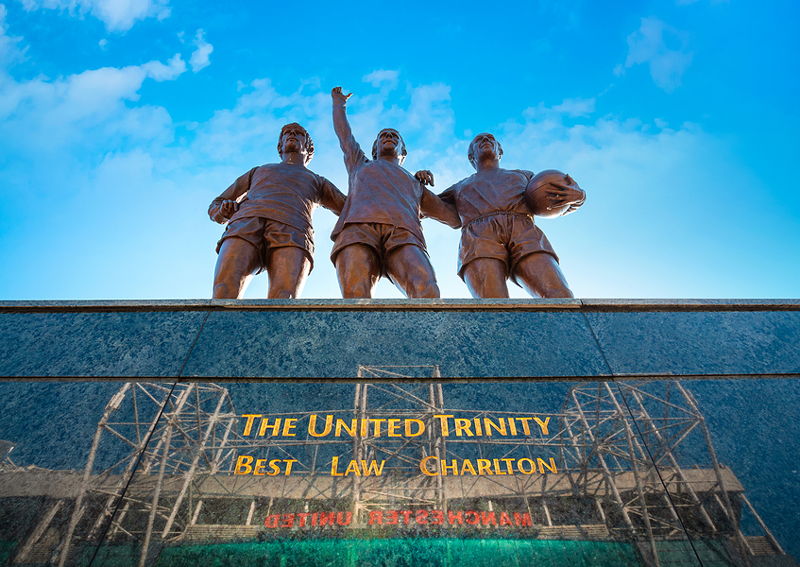Football.
The beautiful game.
A simple sport with origins dating all the way back to the 19th century.
The game which even in the bleakest times, can unite the bitterest of enemies.
In 1914, the British and the Germans started playing football on their Christmas day ceasefire.
There’s no greater example of what this sport means.
From Pele to Diego Maradona, football has seen individuals become true artists on the field, painting a legacy of brilliance as they perfect and master this lucrative sport.
But if there was one player which epitomized and defined what made this game so good, and illustrated the sheer quality, but respectability as a person, it would be the late Sir Bobby Charlton.
Who was Sir Bobby Charlton?

Charlton was born in Ashington, Northumberland on the 11th October 1937.
He played for East Northumberland schools before being spotted by Manchester United’s chief scout Joe Armstrong.
He was signed for United as a schoolboy in 1953, before this became professional in 1954.
In 2023, Manchester United’s DNA is built on the use and progression of youth and thus the FA youth cup is a significant trophy.
Such importance stemmed from Sir Matt Busby and his creation of a foundation of youth players, which would define the generations to come.
These were known as the ‘Busby Babes.’
Charlton was one of these.
The English international won the FA youth cup in 1954, 1955 and 1956, before making his official debut for United in 1956 against Charlton Athletic.
Charlton immediately set the tone for his future at the club scoring two in this game.
Whilst playing for United, Charlton was completing National Service with the Royal Army Ordinance Corps in Shrewsbury with fellow ‘babe’ Duncan Edwards.
In his first season, Charlton scored 12 goals helping United win the league title, which was just the fifth in their history at the time.
The footballing association had previously been against English teams competing in Europe but United became the first having just won the league.
Busby’s men reached the semi finals but were knocked out by Real Madrid.
The following year, tragedy struck.
The Munich air disaster 1968
After progressing through to the European Cup semi finals having beaten Red Star Belgrade on aggregate, the team were due to fly home.
However, the plane had to stop in Munich to refuel.
Whilst in Munich, bad weather struck, with ice and snow on the runway.
This led to a heartbreaking crash which saw 23 people die, including eight United players.
After spending a week in hospital suffering from minor cuts but significant shock, Charlton made a full recovery.
Success after Munich
After the horrifying events in Munich, it took United five years to get back to winning ways, with Charlton lifting his first FA cup after beating Leicester City 3-1 in 1963.
Further success soon followed with Charlton winning the 1965 and 1967 league titles.
In 1966, Charlton won the Ballon D’or or European footballer of the year as it was then known.
However, the pinnacle of his club career came in 1968, 10 years after the tragedies in Munich.
United became the first English side to reach the European cup final and subsequently won it beating Benfica 4-1.
Charlton, who was United captain at the time, scored twice in this historic and emotional victory.
Five years later, Charlton left United in 1973.
In his 758 appearances for the red devils, Charlton scored a remarkable 249 goals.
He left as a hero, an icon, a legend.
A player that time will never forget.
A legacy so ingrained into the very meaning and identity of football, that just a mention of his name will spark countless stories of his magnificent career and amazing personality.
International career
Having progressed through the ranks from the England schoolboys in 1953, to the England youth in 1954, and the U23’s in 1958, Charlton was called up for England’s senior team to play in the British home championship against Scotland in April 1958.
He burst onto the international scene in triumphant fashion, scoring on his debut.
Charlton was picked for the 1958 World Cup, but did not feature.
However, in 1962, Charlton was once again selected and managed to score in a group stage victory over Argentina. Unfortunately, Charlton wasn’t able to carry England to World Cup victory with the three lions losing to Brazil in the quarter finals.
1966 World Cup
Arguably the most iconic and memorable moment of Charlton’s career came with England’s victory in the 1966 World Cup.
The advanced midfielder scored three goals in this campaign, which included two goals in England’s semi final victory over Portugal.
Charlton then featured in Euro 1968, before retiring after the 1970 World Cup.
Charlton retired from international duty as England’s top scorer with 49 goals, but has since been bettered by Wayne Rooney’s 53 goals and Harry Kane’s 61 goals.
The legendary footballer is also seventh in England’s all-time appearance makers as well.
Tributes
Tributes have flooded in.
Manchester United made a special tribute for Charlton in their home Champions League victory against Copenhagen, with a wreath placed in what would be Charlton’s seat at Old Trafford and another wreath placed onto the pitch by United manager Erik ten Hag.
Whilst Ten Hag walked out and placed this wreath, a lone piper played the tune, “We’ll never die, we’ll never die, we’ll never die, we’ll never die, we’ll keep our red flag flying high because Manchester United will never die.”
A touching moment with the song originating from the tragedy in Munich.
The last of the Busby Babes
Bobby Charlton was the last surviving player of the Munich air disaster to pass away.
1937-2023 R.I.P#BobbyCharlton #MUFC #busbybabes pic.twitter.com/sj9XYckolW— MANCHESTER UNITED FANS (@Unitedfans2023) October 21, 2023
When speaking about Charlton, former United fullback Gary Neville said: “I think he’s Manchester United’s greatest representative around the world.”
Sir Bobby Charlton.
11th October 1937 – 21st October 2023.
A wonderful player, and a remarkable person.

